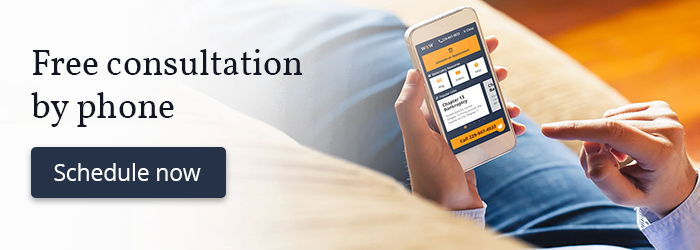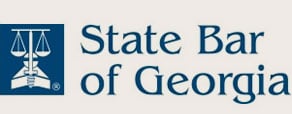These times are unlike any other. Instead of worrying, take control and chart a path toward financial peace.
We’ve all seen recent headlines about companies who are filing for bankruptcy or may file soon due to the economic impact of COVID-19. They include major American companies like Hertz rental car, J.C. Penney, and AMC movie theaters.
But believe me, these companies aren’t the only ones who need bankruptcy protection. Layoffs related to COVID-19 have thrown thousands of people out of work, leading to the highest unemployment rates in decades.
Bankruptcy Can Give You a Sense of Control
A whopping 30% of Americans missed their house payments in June. If you’ve been laid off, seen your hours cut, or lost a business, you may be one of those Americans – or be worried about paying your other bills or putting food on the table.
Worry is completely understandable. After all, job loss or reduced hours means there’s less money coming in. Even if you’ve received stimulus checks and unemployment benefits, you may not be able to cover things like housing payments, food, credit cards, car payments, and student loan debt. Plus, at some point, unemployment checks and stimulus money will run out – and the unemployment picture may still be bleak when it does. Creditors may be calling you. You may feel a sense of shame and anxiety as constant companions.
Here are two important things to remember. First, there’s no shame in bankruptcy. During COVID-19, many bad things have happened to good people. Second, bankruptcy exists to give you relief, and it can provide a sense of control during this time.
Instead of dodging creditors and worrying, take control and chart a path toward the future.
It Can Help You Develop a Financial Strategy
Never delay dealing with a financial crisis such as inability to pay your bills. Why? Because if you can’t pay bills, those bills don’t go away. You just fall deeper into debt. Credit cards can charge late fees, fines, and more. A skipped mortgage or rent payment, even if your bank or landlord is okay with it, means you then owe for two months, and then three…you’re falling deeper and deeper into debt.
Bankruptcy gives you a financial strategy for the future. There are two forms of bankruptcy. In Chapter 7, unsecured general debt, like credit cards and medical debt, is wiped out. You no longer owe it. In Chapter 13, you’ll receive a repayment plan for up to 5 years, where you’ll pay your creditors back.
[If you can't keep current with bills, don't wait to file. Here's how bankruptcy can help you keep your savings instead of exhausting them to pay creditors.]
Let’s say you have student debt, for example. Millions of Americans owe a total of $1.6 trillion in student debt. Student debt can’t be erased, but there are many ways to get help. Payments on some loans can be deferred between April and September, for example. In addition, Chapter 13 bankruptcy can make payments more manageable.
Bankruptcy is a Chance to Protect Your Home and Your Assets
People worried about debt or being thrown into the street through inability to pay rent or a mortgage may also try to draw on any savings, including retirement or college savings, to pay what they owe. But if you do, you end up with no resources. If you have $0 in the bank, you have no money for the future – which means you run the risk of financial pain and insecurity later on.
Watch: How We Can Help Save Your Home
The fear of ending up on the street is a real concern for Georgians. Evictions and eviction filing for Georgia renters is more than two times above the U.S. average. The problem is partly COVID-19, but it’s also the high cost of rent in Georgia. Forty-six percent of Georgia renters are defined as cost-burdened, which means they spend over 30% of their income (pre-COVID) on rent. Twenty percent of homeowners in Georgia are cost-burdened by the same criteria. Not only that, but foreclosures in Georgia rose 24% last year – before COVID-19!
Bankruptcy protects your home, as well as your motor vehicle and personal property, up to specific dollar amounts. Bankruptcy also protects your retirement accounts from creditors. You don’t need to dip into them to pay your bills.
[Remember, bankruptcy was created to give hardworking people a second chance. Here's the truth about filing bankruptcy and your credit score.]
Many folks may be tempted to use every cent of their stimulus check to pay bills. But stimulus checks are protected too if you file for bankruptcy. They do not count as income. Also, they do not affect your eligibility to file for bankruptcy.
Build for the Future
Best of all, bankruptcy gives you a chance to build for the future. Although it will affect your credit score, you can immediately begin work at raising your credit score. It’s especially important to monitor your credit score during COVID-19. Lenders are supposed to give consumers a break on some monthly bills without reporting them as delinquent or past due. However, lenders may make errors when reporting a loan’s status to the companies that compile credit information.
Each of the three credit-reporting companies is providing one free weekly credit report until April 2021, versus one per year ordinarily, at AnnualCreditReport.com.
Bankruptcy is a way to get financial peace. Don’t wait to discuss your options with one of our experienced attorneys. Call us for free at 229-247-1211.
 Will Woodall is managing partner at Woodall & Woodall and has been practicing bankruptcy law in South Georgia since 2003. In 2018, he was selected as one of the top 20 bankruptcy attorneys by Georgia Trend Magazine.
Will Woodall is managing partner at Woodall & Woodall and has been practicing bankruptcy law in South Georgia since 2003. In 2018, he was selected as one of the top 20 bankruptcy attorneys by Georgia Trend Magazine.






